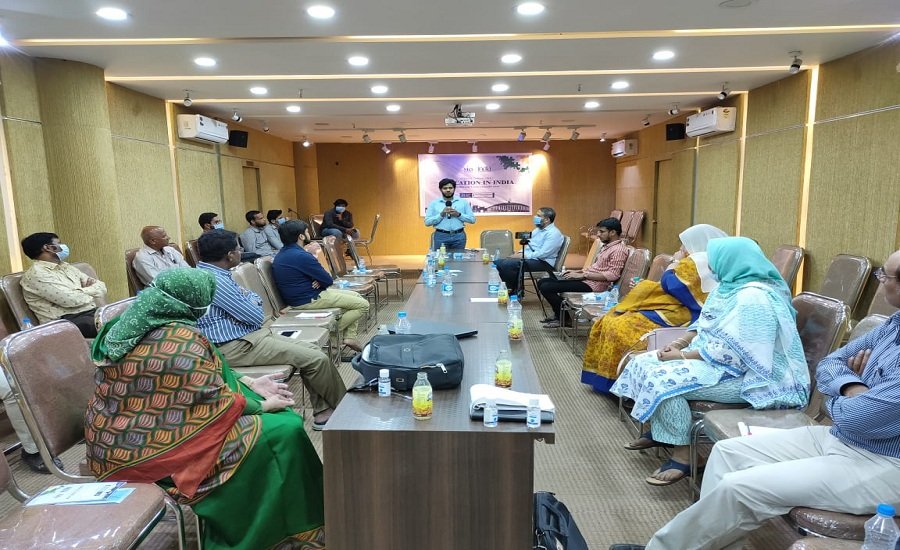
SIO holds round-table meet focusing on New Education Policy and its implementation
Team Clarion
HYDERABAD – The Students Islamic Organisation of India (SIO) held recently a round-table meet where prominent educationists and intellectuals deliberated on government’s New Education Policy (NEP) and its implementation; level of government schools education in India in general and Telangana in particular; purpose of education in India; scientific temperament in education in India; pedagogy and psychology of teaching; etc.
The programme was part of a campaign which the SIO has launched with the theme “India as a welfare state”. Under this theme, it is conducting a series of programmes. Education in India is one of them.
Amirullah Khan said that NEP is not having any explicit focus on learning level. The main issue of Indians in general and the Muslim community in particular is education, followed by job, he said. The government should focus on improving the quality of education, he opined.
Javeriya Saleem, referring to various surveys related to education, said there were several loopholes in the data. She said they lack the right direction or approach for policy implementation; there is no accountability for teachers; no liability is fixed on government schools. She was of the view that it was high time the government should take responsibility for such failures and fix the problem.
Professor Dharmiya said that the government was making such policies that were promoting drop-outs and deliberately decreasing schools’ budgets. He further said we should think on critical lines and work to improve the quality of education.
Others who participated in the discussion included Dr Kumar, Dr Samuel and Dr Salahuddin.
In his concluding remarks, Dr Talha Fayazuddin, president of SIO’s Telangana unit, said that India’s constitution describes the country as a welfare state. The foremost necessity of a welfare state should be education.
“With reports and statistics discussed, the current sorry state of education in our country is quite palpable. Therefore, we as responsible citizens and groups need to further discuss means to facilitate and impart equal, equitable and inclusive education. We also need to understand the true concept and philosophy of knowledge and education without which education not only gets limited to employment and income, but also creates literate ignorant people who are dangerous to the society. It takes political as well as social will to understand and accept the change that is very much needed today, and we need to spearhead this change,” he said.

